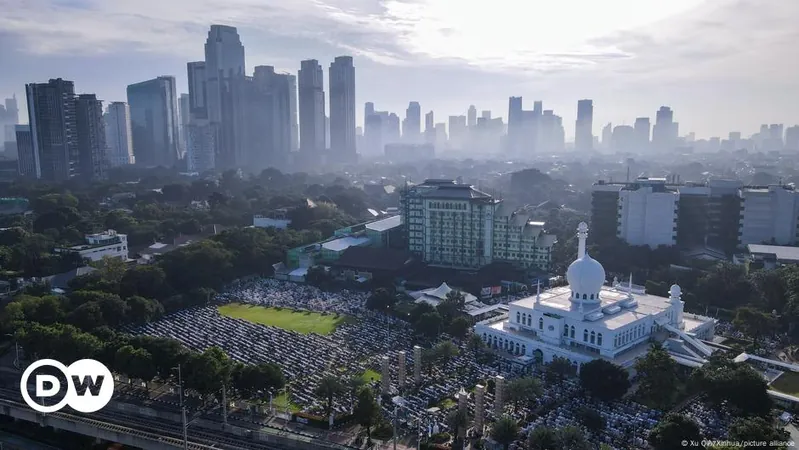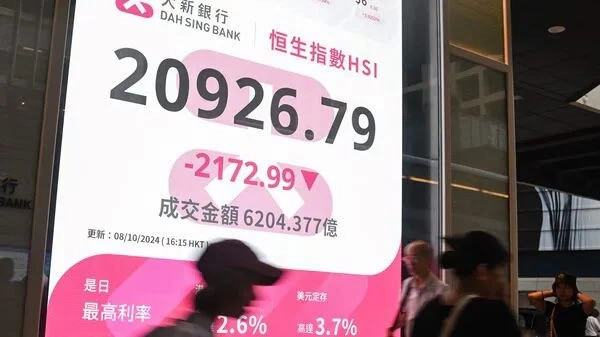
Indonesia Officially Joins the BRICS Bloc: A Game-Changer for the Global Economy
2025-01-07
Author: Ying
In a significant development for international relations and economic cooperation, Indonesia has officially become the tenth full member of the BRICS group. The announcement was made on Monday by Brazil, the founding member currently holding the rotating presidency for 2025.
Brazil's government expressed its enthusiasm, welcoming Indonesia with a statement emphasizing its pivotal role in Southeast Asia. “With the largest population and economy in Southeast Asia, Indonesia is well-aligned with our commitment to reforming global governance and enhancing South-South cooperation,” the statement read.
Indonesia's journey to BRICS membership began when its candidacy was endorsed by BRICS leaders back in August 2023. However, Indonesia decided to delay its formal accession until after the establishment of its newly elected government, ensuring all political factors were considered.
What is the BRICS Group?
BRICS, an acronym for Brazil, Russia, India, China, and South Africa, was formed to create a counterbalance to the G7—comprising mainly Western nations like the United States, Canada, and several European countries. Since its inception in 2009, BRICS has seen significant growth, with the addition of Iran, Egypt, Ethiopia, and the United Arab Emirates into the fold in 2024.
As of now, the BRICS bloc represents 46% of the global population and accounts for a staggering 35% of the world’s gross domestic product (GDP). This expansion is redefining the landscape of global economics and geopolitics, as emerging economies seek to carve out a greater share of influence.
Among the implications of Indonesia’s membership, the nation has the potential to offer a fresh perspective in discussions about local currencies and reducing reliance on the US dollar—continuing the bloc’s trend toward economic independence as established in recent summits.
Future Prospects and Dynamics
As BRICS looks ahead, Saudi Arabia has also received an invitation for membership, while several countries, including Turkey, Azerbaijan, and Malaysia, have applied for access. The ongoing discussions within BRICS reflect a strong desire among member nations to collaborate more closely and challenge the traditional power structures of global trade and finance.
The next BRICS summit is slated to take place in Rio de Janeiro in July, a gathering that will likely further reshape global economic partnerships and policies. With Indonesia's new role, the dynamics within BRICS are bound to evolve, and the world will be watching closely to see how this impacts international relations.
In a world increasingly marked by economic alliances, Indonesia’s entry into BRICS could be the key that unlocks even deeper cooperation among developing nations. What could this mean for the future of global governance and the balance of economic power? Only time will tell!



 Brasil (PT)
Brasil (PT)
 Canada (EN)
Canada (EN)
 Chile (ES)
Chile (ES)
 Česko (CS)
Česko (CS)
 대한민국 (KO)
대한민국 (KO)
 España (ES)
España (ES)
 France (FR)
France (FR)
 Hong Kong (EN)
Hong Kong (EN)
 Italia (IT)
Italia (IT)
 日本 (JA)
日本 (JA)
 Magyarország (HU)
Magyarország (HU)
 Norge (NO)
Norge (NO)
 Polska (PL)
Polska (PL)
 Schweiz (DE)
Schweiz (DE)
 Singapore (EN)
Singapore (EN)
 Sverige (SV)
Sverige (SV)
 Suomi (FI)
Suomi (FI)
 Türkiye (TR)
Türkiye (TR)
 الإمارات العربية المتحدة (AR)
الإمارات العربية المتحدة (AR)